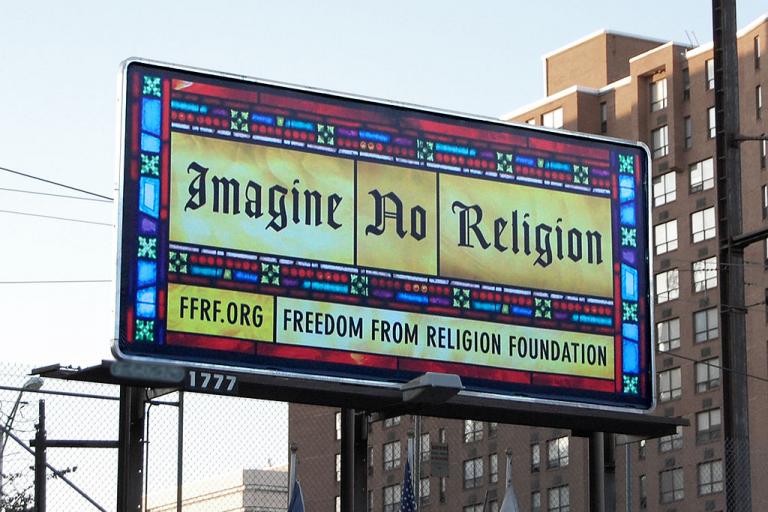As we have blogged, the housing allowance tax exemption for ministers of religion has been ruled unconstitutional in a Wisconsin lawsuit filed by the Freedom From Religion Foundation. Last week, an appeal of that decision was filed with Seventh Circuit Court of Appeals.
The exemption allows ministers of religion–which includes called teachers on the roster of the Lutheran Church Missouri Synod–to deduct from their income taxes what they spend on housing, which congregations structure as a “housing allowance” in lieu of a parsonage. This has become an important benefit for American clergy, 81% of whom receive part of their compensation as a housing allowance.
The Freedom From Religion Foundation argued that this benefit favors leaders of religious organizations, since it is not available to employees of non-religious companies. Supporters of the exemption are arguing that employees of non-religious companies sometimes do get a non-taxed housing allowance, as when a company requires an employee to live in a foreign country or in another specific location.
The Alliance Defending Freedom, many religious organizations, and some 5000 pastors are supporting the appeal, which is being argued by Becket, a religious liberty legal foundation.
The elimination of the housing allowance exemption would reportedly bring into the U.S Treasury some $1 billion.
Kate Shellnutt in Christianity Today has written a fascinating article on the subject, going over the arguments on both sides and giving the history of the exemption. A sample:
Currently, 81 percent of full-time senior pastors in the US receive a housing allowance, according to the latest compensation figures obtained by CT’s Church Law & Tax. The typical church spends about 9 percent of its total budget on housing compensation.
According to congressional estimates, by not paying taxes on this portion of their income, American pastors save a total of $800 million a year.
Luke Goodrich, deputy general counsel for Becket, anticipates the appeals ruling will come down on the side of the pastors. The exemption for ministers dates back centuries in the US, and fits alongside today’s tax code provisions for employer-provided housing.
Historians noted how the earliest American colonies exempted churches from paying property taxes, and that benefit expanded to apply to parsonages in all 50 states. In the 20th century, as fewer churches began to house pastors on church property, the tax code was amended so that ministers could claim an exemption on their housing allowance, or the portion of their income used to cover outside lodging, starting in 1954. (The current case before the courts specifically challenges the housing allowance, not parsonages.)
The tax code offers similar exemptions to secular employees whose housing is furnished by their employers because they’re required to live in a certain place due to the demands of the job—think governor’s mansions or special accommodations for overseas workers. But it’s up to the Internal Revenue Service (IRS) to evaluate these “convenience of the employer” instances to see if the provided housing is necessary and merits the exemption.
“When the taxpayer is secular, this inquiry is difficult,” Becket’s opening brief reads. “When he is a minister, it is theologically charged.”
The pastors who have joined the suit argue that their jobs demand they live among their church members and use their residences for church activity; in some cases, their homes serve as the primary gathering place for the congregation. The group includes Chris Butler and Edward Peecher of Chicago Embassy Church, Patrick Malone of Holy Cross Anglican Church, and the Diocese of Chicago and Mid-America of the Russian Orthodox Church Outside of Russia.
They say they deserve the tax breaks available to other workers—and the benefits received by fellow clergy, often from more liturgical and established congregations, who live in church-owned properties.
Goodrich argues that the tax code’s special consideration for ministers’ housing allowance does not amount to an establishment clause violation, as FFRF alleges, but instead is a means to prevent government entanglement in religious affairs.
If the government were to scrutinize housing allowance recipients or to allow parsonage allowances but not stipends, “it would be the IRS and the courts deciding what is the essence of the church,” he said. “Is what takes place in a minister’s home really important to the church or not?”
If pastors lose this tax exemption, it will mean a significant hit to their income. If that happens, congregations would do well to find ways to make their pastors “whole” by increasing their salaries if at all possible.
This raises another issue, whatever the outcome of the case. Should churches go back to the practice of providing parsonages?
In Australia, where I just came from, the Lutheran Church of Australia provides a “manse” for all of their pastors, including seminary professors. The churches have owned these properties for decades, and now they have become very valuable. Having a manse allows a pastor to live in a city with very high housing prices. And if he is called to another parish, he can easily move, without the difficulty of selling his old home and buying a new one, which is especially helpful in small towns that have a slow real estate market.
The argument for congregations replacing their parsonages with a housing allowance is that this allows pastors to own their own homes and thus build up equity.
Is that argument as valid today, after the bursting of the real estate bubble? In some areas, such as California and most big cities, the price of a house is still far beyond the reach of most pastors, especially those just out of seminary. Wouldn’t it help–in those markets particularly–if the church could provide a parsonage?
One problem of the parsonage system is that pastors do not have a place to live when they retire. Are there other solutions for that?
At any rate, pastors and their congregations need to be monitoring this court case and making plans if the decision goes against them.














